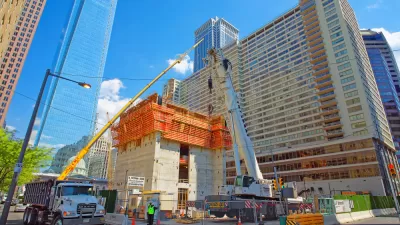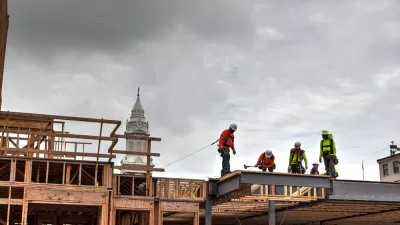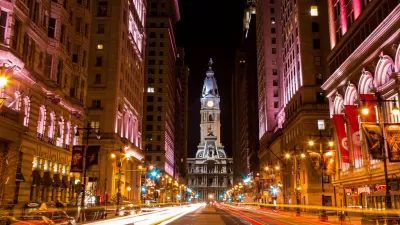A recently proposed law would attempt to force developers and neighborhood projects to the table to negotiate large projects in the city of Philadelphia.

Philadelphia City Council President Darrell Clarke recently introduced legislation that would mandate community a benefits agreements process between real estate developers and neighborhood groups for developments "High Impact Development Projects" and projects receiving city support, according to an article by Jake Blumgart.
"A handful of community organizations in Philadelphia secure these kind of contracts already, negotiating with developers to win amenities or services in exchange for support of large projects," according to Blumgart.
Council President Clarke based the legislation on a law in place in Detroit. Like the law in Detroit, the negotiation is necessary, but an agreement at the end of the process is not required.
So far, it seems like developers are waiting for more details before passing judgment on the bill. "The development industry reaction to the bill was muted, perhaps because Clarke introduced it on the second to last City Council session before the summer recess. That means it won’t receive a hearing until fall," reports Blumgart. The article gleans as much detail about the process would look like and the kinds of projects that would require the additional steps.
FULL STORY: Force big developers to offer community benefits? Philly’s Council President wants to make it law

Manufactured Crisis: Losing the Nation’s Largest Source of Unsubsidized Affordable Housing
Manufactured housing communities have long been an affordable housing option for millions of people living in the U.S., but that affordability is disappearing rapidly. How did we get here?

Americans May Be Stuck — But Why?
Americans are moving a lot less than they once did, and that is a problem. While Yoni Applebaum, in his highly-publicized article Stuck, gets the reasons badly wrong, it's still important to ask: why are we moving so much less than before?

Using Old Oil and Gas Wells for Green Energy Storage
Penn State researchers have found that repurposing abandoned oil and gas wells for geothermal-assisted compressed-air energy storage can boost efficiency, reduce environmental risks, and support clean energy and job transitions.

Poorest NYC Neighborhoods Pay Price for Delivery Boom
The rise of ‘last-mile’ e-commerce warehouses — and their attendant truck traffic and air pollution — is disproportionately impacting the most historically disadvantaged parts of the city.

Greening Oakland’s School Grounds
With help from community partners like the Trust for Public Land, Oakland Unified School District is turning barren, asphalt-covered schoolyards into vibrant, green spaces that support outdoor learning, play, and student well-being.

California Governor Suspends CEQA Reviews for Utilities in Fire Areas
Utility restoration efforts in areas affected by the January wildfires in Los Angeles will be exempt from environmental regulations to speed up the rebuilding of essential infrastructure.
Urban Design for Planners 1: Software Tools
This six-course series explores essential urban design concepts using open source software and equips planners with the tools they need to participate fully in the urban design process.
Planning for Universal Design
Learn the tools for implementing Universal Design in planning regulations.
Heyer Gruel & Associates PA
City of Moreno Valley
Institute for Housing and Urban Development Studies (IHS)
City of Grandview
Harvard GSD Executive Education
Salt Lake City
NYU Wagner Graduate School of Public Service
City of Cambridge, Maryland





























